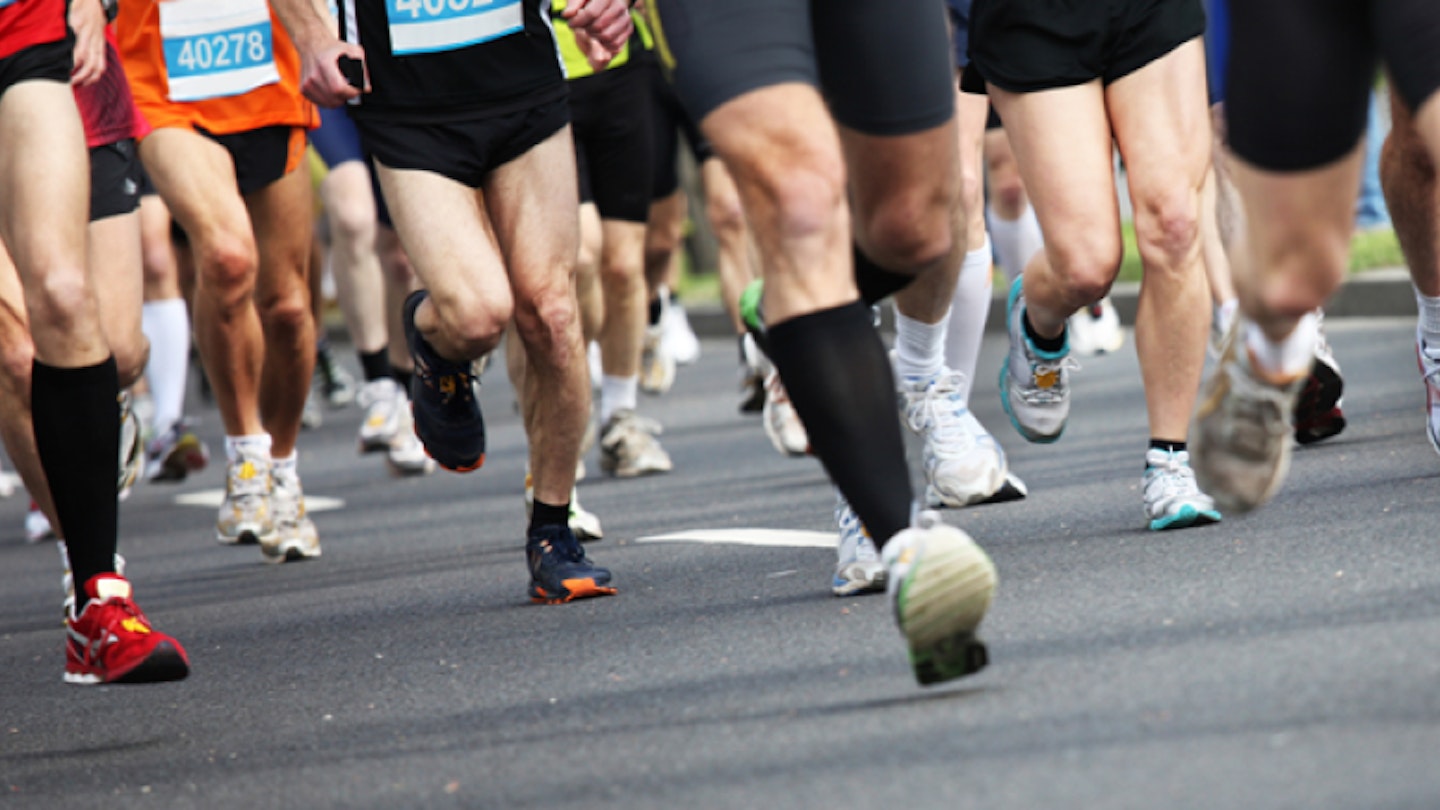Whether you’re training for a 5K or marathon, we all start our training the same way - with the best of intentions. You're going to start months ahead of the event, wake up bright and early every Sunday and run effortlessly to a (booze-free) brunch before a week of sprint and tempo sessions.
Then reality sets in.
We wake up hungover on the first Sunday and barely make it to the end of the road. We pull our hamstrings during a treadmill session which writes us off for weeks on end. Our bosses make us work late so we miss our strength sesh. We get sick, stressed, overbooked.
Perfect training plans only exist on Instagram, and despite most of us knowing that, it can be really hard to shake off the idea that unless you’ve had three or four months of uninterrupted gains and miles, you’ve failed before you’ve even gotten to the start line.
Whatever corny cliches may be out there about marathons, one is definitely true: much of it is in the mind.
Eliud Kipchoge broke the world marathon record last week, smashing the sub-2 hour benchmark by 20 seconds. The elite of the elites, his training probably didn’t change massively to take his time down from the previous record of 2.01.39...which makes you think that much of his incredible achievement was down to mindset.
‘This shows that no one is limited,’ he said after the race (imagine even being able to chat after licking 26 miles in the time it takes most people to run a half marathon!).
And he’s right - even when you have physical or emotional limitations, there’s still a way to push for what we want.
My own - much less impressive - personal best came last weekend up in Inverness at the Loch Ness Marathon.
What should have been a straightforward training period in the run up to the event was anything but. I got hit by a car back in Spring (out running!) which landed me in hospital having to have metal plates fixed in my arm. I developed gallstones six weeks before the race. I had a week of super-late nights the week before. I started getting a cold with 48 hours to go. Oh, and my period started the day before.
By the time I was on the shuttle bus up to the startline, I was feeling sick with dread.
Anyway, into the race I went.
And you know what happened? I had the best race of my life. I felt amazing, energised, grateful and happy - which has never happened before in any race of any distance. And that was all down to the total lack of pressure and expectation. Rather than running head down, stressing about times, I was grateful to be out on the course, putting one foot in front of the other.
Loads of people think of running as a sort of grim punishment for eating the odd sausage roll. It’s painful, boring and not the most effective fat-burner. But flip your mindset and you soon realise that there’s nothing more liberating that being able to move and transport your body with absolutely no outside aid. You can run whatever your size and goal.
Chomping around that Loch as the sun came out from behind the clouds and the sheep looked up from their grazing to contemplate the herd of mad runners going past, I realised that I could have been killed in that car accident. My gallbladder could have burst during my last attack. I could have lost grip of my mental health after a series of stresses. But here I was, sucking in the Scottish air and chatting to running strangers about Brexit and bible translations (marathon chat isn’t award-winning, I grant you).
Before I knew it, I was on the downhill assent into Inverness and the last 10K - at which point I did actually plug in, dig deep and came over the finish line with a sub-4 hour chip.
Marathons and long distance running can be life affirming if you want them to be. Some people want to smash mad times, want to ride the pain bus for a 3.30 finish and then relax. Others just want to survive. Me? I wanted to learn something about myself for a few hours.
Don’t let the fact that loads of people seem increasingly keen to slog their guts out along a 26.2 mile stretch fool you into thinking that a marathon is a walk in the park; it’s still one of the hardest things you can do. And realistically, only about 1% of people have run one - so it’s a pretty rare feat. You’ve got to be fit (obviously) and you’ve got to be prepared (no last minute changes to diet, shoes, kit).
But mindset is king, and if there’s no opportunity to learn about yourself quite like the stunning Loch Ness Marathon.
See you on the startline next year
